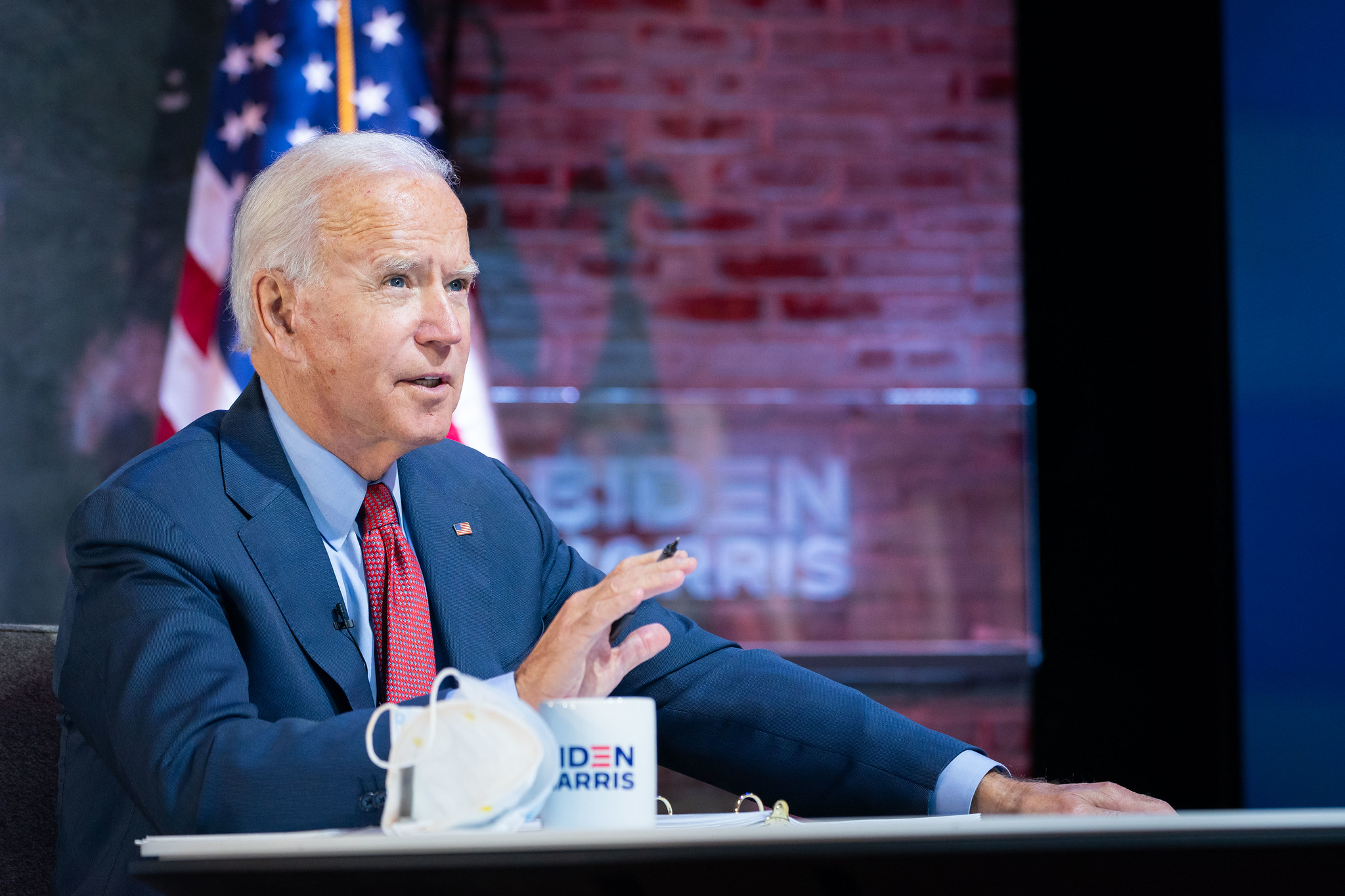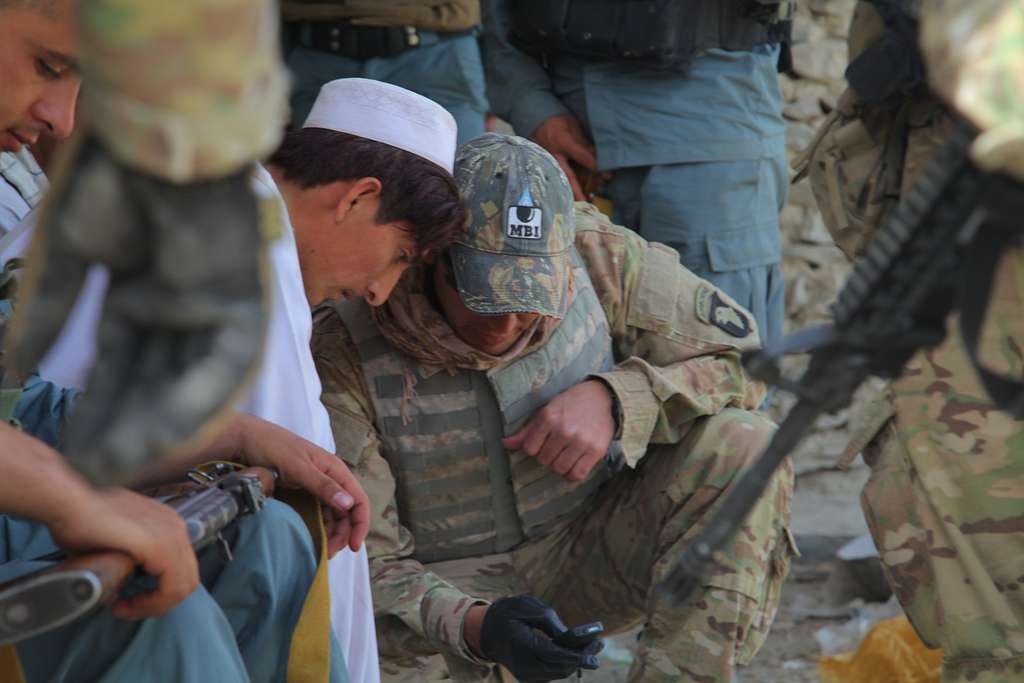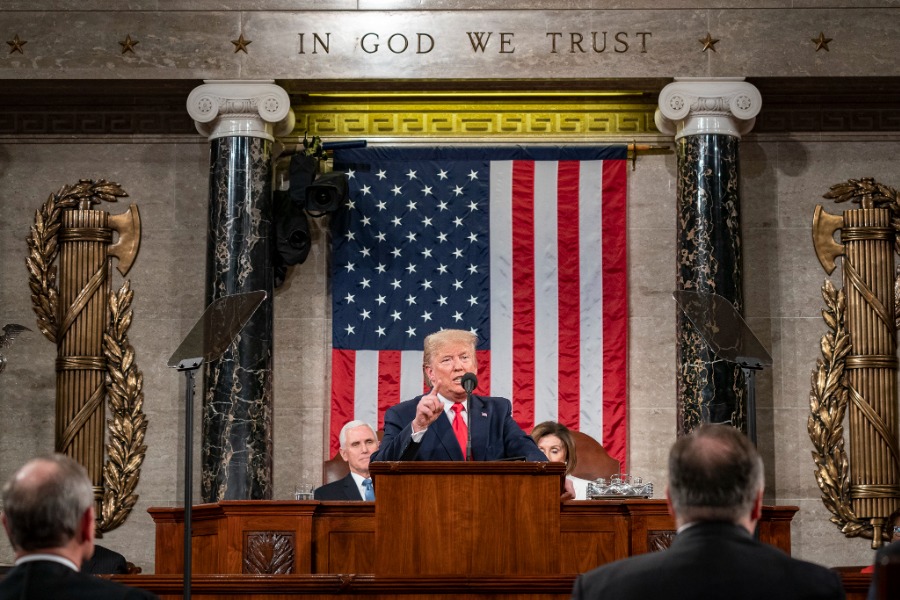Biden and War Powers
Amidst an ongoing debate over aging AUMFs, how does the president view the war powers? Biden's long tenure in the federal government suggests that while he might claim broad war authority, he will not use major force absent significant congressional support.

Published by The Lawfare Institute
in Cooperation With

One of the first efforts being made by progressives in the new Congress is to repeal the 2001 and 2002 authorizations for the use of military force (AUMFs) used by presidents for military operations across the greater Middle East over the past two decades. While some jurists opine that the time might be ripe for a reexamination of the war powers relationship between the president and Congress, any such repeal-and-replace would likely have to be supported by the president in order to succeed. Of course, President Biden’s support for or opposition to such an effort would likely be influenced by his own understanding of the war powers relationship. What, then, is Biden’s perspective on presidential war powers?
A Long History
Although journalists have already given substantial attention to Biden’s record on foreign policy in general, less attention has been paid to his view of the commander-in-chief power provided in Article II of the Constitution. Given Biden’s long time in the Senate, however, the new U.S. leader has had a long tenure dealing with war powers questions. Interestingly enough, Biden’s first year in the Senate, 1973, was perhaps the most important year in war powers history. This was the year in which the Paris Peace Accords were signed, ending American involvement in the Vietnam War, and in which Congress took the unprecedented step of affirmatively forbidding the use of force in the region (a vote for which Biden was absent). Furthermore, 1973 saw the passage of the War Powers Resolution (which Biden supported) and the publication of Arthur Schlesinger’s seminal “The Imperial Presidency.”
Over the past half-century, Biden’s view of presidential war powers has seemed to fluctuate between moderate congressionalist and presidentialist positions. On some occasions, for example, he expressed sentiment suggesting a relatively narrow view of the Article II powers. During the fall of Saigon in 1975, Biden gave several floor speeches related to Congress’s power over war. He lamented that “time and time again we members of Congress are repeatedly told by the press and presidents that we are incapable of making foreign policy decisions. We are told that the Congress with its 535 members is institutionally incapable of making policy decisions. It is my opinion that this is highly inaccurate. After all, it was Congress that insisted on our country’s extrication from the Vietnam War.” And when the Ford administration requested clarification from Congress—due to the recently passed War Powers Resolution and the 1973 Case-Church amendment banning military force in Southeast Asia—on what evacuation powers the president had in South Vietnam, Biden made a clear distinction between the narrow power of protecting Americans and the more expansive power of helping foreign nationals. In an April 23 floor speech, Biden stated that the president had the inherent constitutional authority to evacuate U.S. citizens but that authority relating to non-Americans was a wholly different matter falling outside of the commander-in-chief power. Interestingly, Biden was seemingly opposed to such an evacuation effort from a policy perspective as well.
A decade later, however, Biden seemed willing to embrace more expansive presidential power. Indeed, he co-authored a 1988 article in the Georgetown Law Journal agreeing with the already widespread sentiment that the War Powers Resolution had failed to fulfill its desired ends of encouraging interbranch deliberation and congressional input in use-of-force decisions while still permitting the president enough flexibility to meet grave dangers in an emergency. As a solution, Biden and his co-author pushed for more circumstances under which unilateral presidential action would be permitted, including:
(1) to repel an armed attack upon the United States, its territories, or its armed forces;
(2) to respond to a foreign military threat that severely and directly jeopardizes the supreme national interests of the United States under extraordinary emergency conditions that do not permit sufficient time for Congress to consider statutory authorization;
(3) to protect and extricate citizens and nationals of the United States located abroad in situations involving a direct and imminent threat to their lives, provided they are being evacuated as rapidly as possible;
(4) to forestall an imminent act of international terrorism known to be directed at citizens or nationals of the United States, or to retaliate against the perpetrators of a specific act of international terrorism directed at such citizens or nationals;
(5) to protect, through defensive measures and with maximum emphasis on multilateral action, internationally recognized rights of innocent and free passage in the air and on the seas;
(6) to participate in multilateral actions undertaken under urgent circumstances and pursuant to the approval of the United Nations Security Council; and
(7) to participate in multilateral actions undertaken in cooperation with democratic allies under urgent circumstances wherein the use of force could have decisive effect in protecting existing democratic institutions in a particular nation against a severe and immediate threat.
The authors noted that the Korean intervention (at least the initial stages), the Cuban missile crisis blockade, the Iranian hostage rescue attempt, the Dominican and Grenada invasions, Reagan’s bombing of Libya, and the Persian Gulf escort operations in 1987 would have been permitted under the proposed framework. In other words, the language put forward would have authorized virtually every controversial use of force undertaken by presidents between World War II and the time of writing.
Perhaps most interesting are the two proposed provisions authorizing the use of force pursuant to international authorization. The first would have covered uses of force undertaken under the auspices of U.N. approval, while the second—seemingly prescient of situations like Kosovo in 1999 or Syria in 2013 in which American allies were supportive of action but U.N. authorization was blocked by Russia—would allow for the use of force even absent U.N. approval if acting alongside “democratic allies” in order to protect “democratic institutions in a particular nation.” Permitting such uses of force absent congressional approval would seemingly be quite an expansive claim of power. It should be noted, however, that the article argued that even with these provisions “an extended use of force would eventually require congressional approval.” Nevertheless, the article suggests that from a normative perspective, Biden saw relatively broad presidential powers as desirable.
Yet, only a few months later, as many lawmakers in both parties of Congress pressed a newly elected President Bush to intervene in Panama in 1989, Biden suggested that the president lacked any such authority. In an Oct. 5 floor speech, Biden argued that “[t]he president has the authority under the proper circumstances—under existing treaties or under the Panama Canal Treaties—to take actions that are allowed by the treaties to engage in multilateral actions with the Organization of American States but he does not have the authority now to go in for whatever reason and start a war or to use force to go in and remove a particular person.” Biden was likewise narrow in his interpretation of presidential power a year later, after the Iraqi invasion of Kuwait, when he endorsed a resolution that he described on Oct. 2, 1990, as requiring “the president to seek a declaration of war or other statutory authorization if significant hostilities break out.” Indeed, after Bush formally requested approval from Congress early the following year, Biden stated in a Jan. 10 debate that the decision to use force against Iraq was “a question which the Congress, and only the Congress, can answer”—a position contrary to the claims of the Bush administration at the time. Biden would then proceed to vote against the 1991 AUMF.
To his credit, Biden showed intellectual consistency when the executive was a co-partisan. For example, when President Clinton very publicly threatened Haiti with invasion in 1994, Biden argued that “in the absence of an affirmative congressional vote the president does not now possess the power to authorize the use of force in Haiti.” He elaborated that “the president has the sole power to direct American military forces in combat. But that power has effect only after the proper authorization has been provided by Congress. Until that authority is granted, the president has no inherent power to send forces to war—except in certain situations such as to repel sudden attacks or to protect the safety and security of Americans abroad.” Later in the decade, Biden likewise declared during the Kosovo conflict that “it is clear that the president has to come to Congress to use ground forces.”
As Mathew Waxman has likewise pointed out with respect to President Eisenhower, Biden seems to have a good sense of how congressional actions support or undermine the president's bargaining position with U.S. adversaries. After President Clinton had already begun airstrikes in Kosovo absent formal approval, Biden and Sen. John McCain sponsored a resolution approving the move. When pushed as to why Congress should approve something already being done and when not requested by the president, Biden argued that “we should give the air campaign a full opportunity to succeed …. Milosevic and the rest of the world should know we were prepared to do whatever it took to win.” Similarly, when voting in favor of the 2002 AUMF authorizing the use of force against Iraq, Biden explained that the resolution would send a signal to Iraqi President Saddam Hussein and perhaps make war less likely.
After coming to regret his vote in favor of the invasion of Iraq, however, Biden seemed to become more forceful in his defense of congressional prerogatives. Consistent with other members of Congress who have made their influence over use-of-force decisions felt through deterrence of executive unilateralism, Biden publicly threatened in 2007 that “the president has no authority to unilaterally attack Iran. And I want to make it clear, I want it on the record … if he does, as chairman of the foreign relations committee and former chair of the judiciary committee, I will move to impeach him.”
Cynics might argue, though, that Biden’s congressionalist-leaning sentiments changed once again when he moved to the other end of Pennsylvania Avenue in 2009. For example, Biden declared in response to journalist Charlie Savage’s presidential powers questionnaire in 2007 that the “Constitution is clear: except in response to an attack or the imminent threat of attack, only Congress may authorize war and the use of force.” But serving in the executive branch for eight years seemingly broadened his view of executive power. By the 2020 election, Biden essentially embraced the Office of Legal Counsel’s (OLC’s) more expansive “nature, scope, and duration” test likewise embraced by the Clinton, Obama and Trump administrations (note, though, that this was still more restrained than the near-limitless power the OLC asserted under Bush). The test established that military actions with limited “nature, scope, and duration” fall short of war and therefore do not require congressional approval. Going well beyond mere self-defense actions, such a standard has been used, for example, to justify sustained bombing operations and even occupations of entire countries. His 2019 response to Savage stated that “the Constitution vests the President … with the power to direct limited U.S. military operations abroad without prior Congressional approval when those operations serve important U.S. interests and are of a limited nature, scope, and duration.” Worth noting, however, is that Biden explicitly stated in both 2007 and 2019 that he thought even a small-scale use of force against Iran could easily escalate into a larger war and would thus require congressional approval.
What to Expect
Given the very pliable nature of the OLC test embraced in the 2019 questionnaire—and the perhaps disconcerting “evolution” of Biden’s position over time, combined with the strong incentives of the president to acquire as much power as possible—there is reason to worry about further expansions of power in the near future. Biden’s long tenure in Congress, however, is likely to have the effect of limiting his willingness to act unilaterally. This will not necessarily be out of any sense of respect or duty but more out of a personal knowledge of the pain Congress can inflict on a president for a less-than-successful intervention undertaken unilaterally.
Other postwar presidents with extensive experience in Congress, for example, have tended to be wary of acting unilaterally. Prior to Biden, perhaps no president since Lyndon Johnson has come into the office with such lengthy experience on the Hill. While Johnson publicly claimed broad presidential war powers, he privately fretted frequently about always getting Congress involved in any substantial decision regarding the use of military force. Most notably, while asserting no legal necessity to ask for congressional authorization to use military force in Vietnam, Johnson nonetheless requested such approval. The administration had already privately considered what actions it would be willing to take a few months earlier and had concluded that absent congressional approval it would not escalate beyond very limited airstrikes—and specifically rejected the possibility of ground combat. Likewise, in crises in the Middle East and Korea in 1967 and 1968, respectively, Johnson consistently sought to get congressional buy-in through public votes of the legislature prior to military action.
Likewise, another president with extensive experience in the legislature, Gerald Ford, concerned himself deeply with getting Congress on board before risking major military force. Not only did the administration pass on the opportunity in 1975 to use air assets to enforce the Paris Peace Accords and defend South Vietnamese territorial integrity—a solution that likely would have had a fair chance of success given the effective use of air power to stop the 1972 Easter Offensive—but even proved unwilling to evacuate large numbers of South Vietnamese who would be likely targets of violence at the hands of communist forces. While the administration wanted to save these partners of the United States, Ford was gravely concerned with the political consequences he risked if he were to use force in Southeast Asia without congressional approval. Sadly, this concern led to a substantially curtailed evacuation of only a small fraction of the vulnerable South Vietnamese requesting protection.
While the Biden administration—similar to virtually all others since World War II—will publicly assert broad war powers, in practice it will likely avoid substantial unilateral uses of force. To be sure, it seems obvious that the limited airstrikes, special forces missions and rescue operations authorized by all presidents since the end of the Cold War will continue under Biden. After all, the new president has repeated his conviction for decades that “big nations don’t bluff,” and I would bet Biden is willing to follow through on this threat. But for anything more substantial—including uses of force well short of full-scale war—the experienced statesman will likely seek substantial congressional buy-in, if not formal authorization, before acting.





